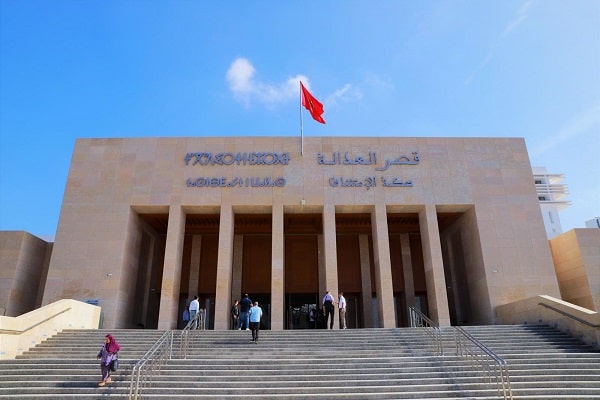
In June, ASF concluded the project “Strengthening the Role of Civil Society in Criminal Justice Reform in Morocco” at a workshop bringing together lawyers, civil society actors, judges, and institutional representatives. This was a moment of collective reflection, especially as the reform of Morocco’s criminal justice system is still ongoing and the stakes for the population are significant.
A Changing Penal System, Still Fragile Rights
Driven by the constitutional reforms of 2011 and the ratification of international human rights commitments, the overhaul of Morocco’s criminal justice system is an ambitious project, but still incomplete to this day. Revisions to the Penal Code, overhaul of the Criminal Procedure Code, reform of the penitentiary law, and the introduction of alternative sentences are just a few of the many promising initiatives underway. However, in practice, fundamental rights remain fragile, particularly for the most marginalized individuals.
It is in this context that ASF carried out this project alongside its partners, to strengthen civil society’s contribution to the ongoing reforms. Through activities such as legal assistance, trial monitoring, documentation, and advocacy, the project highlighted the gaps between legal texts and actual practices and opened up concrete pathways for a more equitable penal reform.
Criminalization of Poverty: A Structural Reality
The results of the project are clear: Morocco’s criminal justice system continues to penalize poverty-related situations rather than treat them as social issues. The majority of individuals prosecuted for so-called “minor” offenses—such as vagrancy, informal trading, drug use, and unauthorized migration—live in severe poverty. Judicial responses remain predominantly punitive, with no social, healthcare, or administrative alternatives.
Certain population groups, particularly women in precarious situations or migrants, face double or even triple penalization due to vague norms applied in a discriminatory manner. ASF calls for a reform of the Penal Code based on an intersectional approach, recognizing the differentiated impact of laws on the most vulnerable groups. Decriminalization of certain behaviors, the development of non-judicial responses, and systematic impact assessments must guide this transformation.
Fair Trial: Making the Right to Defense a Reality
The observation of criminal trials, conducted by trained lawyers, revealed recurring violations of the guarantees of a fair trial: delayed or purely formal defense, lack of prior contact with a lawyer, immediate appearance without preparation, etc. Legal assistance, which is supposed to compensate for inequalities in access to defense, remains unevenly applied and dependent on random local resources.
For ASF, trial observation must be recognized as a legitimate tool for accountability. The project recommends its institutionalization in an ethical and collaborative framework, in connection with bar associations and judicial authorities. Furthermore, the expected reform of the Criminal Procedure Code must ensure effective access to a lawyer from the first hours of detention and throughout the procedure.
Conditions of Detention: Co-Constructing Sustainable Responses
In the context of persistent prison overcrowding, the reform of the penitentiary organization law represents a major opportunity to strengthen rights in detention. The project highlighted the importance of addressing grievances, ensuring access to rights, and providing individual follow-up in prisons—areas that are still insufficiently guaranteed.
Civil society organizations and lawyers can play a crucial role in supporting detainees in their efforts and contributing to better legal, social, and administrative support. ASF calls for these contributions to be framed in a clear legal framework, guaranteeing the complementarity of roles between the administration, legal professionals, and civil society actors.
Alternative Sentences: A Reform to be Realized
The recent adoption of the law on alternative sentences—community service, daily fines, electronic monitoring—is a promising development. However, its implementation, scheduled for August 2025, must be accompanied by concrete measures: training for judges, territorial execution systems, intersectoral coordination, individualized follow-up, and rigorous evaluation.
ASF calls for a concerted mobilization of public authorities, civil society, local governments, and legal professionals to ensure the success of this reform. In particular, associations can play a key role in informing the relevant public, implementing sentences, and analyzing the first judicial decisions.
Towards a Penal Justice Based on Human Rights
In concluding this project, ASF reminds us of the importance of co-constructing a criminal reform that takes into account social realities and the needs of the most vulnerable. A reform based on prevention, reintegration, citizen participation, and the guarantee of rights at every stage of the procedure.
The penal system cannot transform without the collective mobilization of institutions, field actors, and litigants. ASF will continue its engagement alongside its Moroccan partners to advance a more humane, equitable, and accessible justice system for all.
The Project “Strengthening the Role of Civil Society in Criminal Justice Reform in Morocco”
To contribute to the implementation of Morocco’s constitutional and international human rights commitments, particularly by relying on the “Charter for Judicial System Reform” and international conventions adopted by Morocco, Avocats Sans Frontières and the Moroccan Prison Observatory implemented the project “Strengthening the Role of Civil Society in Criminal Justice Reform in Morocco,” co-financed by the European Union.
The project’s main objectives were to:
- Strengthen the capacity of civil society in protecting and defending individuals who are detained and/or in police custody;
- Contribute to the adoption of public policies regarding justice reforms that are in line with international law and human rights standards.
The activities of the project helped strengthen legal aid services for individuals deprived of their liberty, particularly through direct interventions within penitentiary institutions and informational actions aimed at citizens most exposed to arrests, regarding judicial guarantees and the right to a fair trial. They also contributed to establishing a structured dialogue between authorities and civil society through the production of analyses and the implementation of advocacy actions, particularly in the context of ongoing reforms to the Penal Code and the Criminal Procedure Code.
